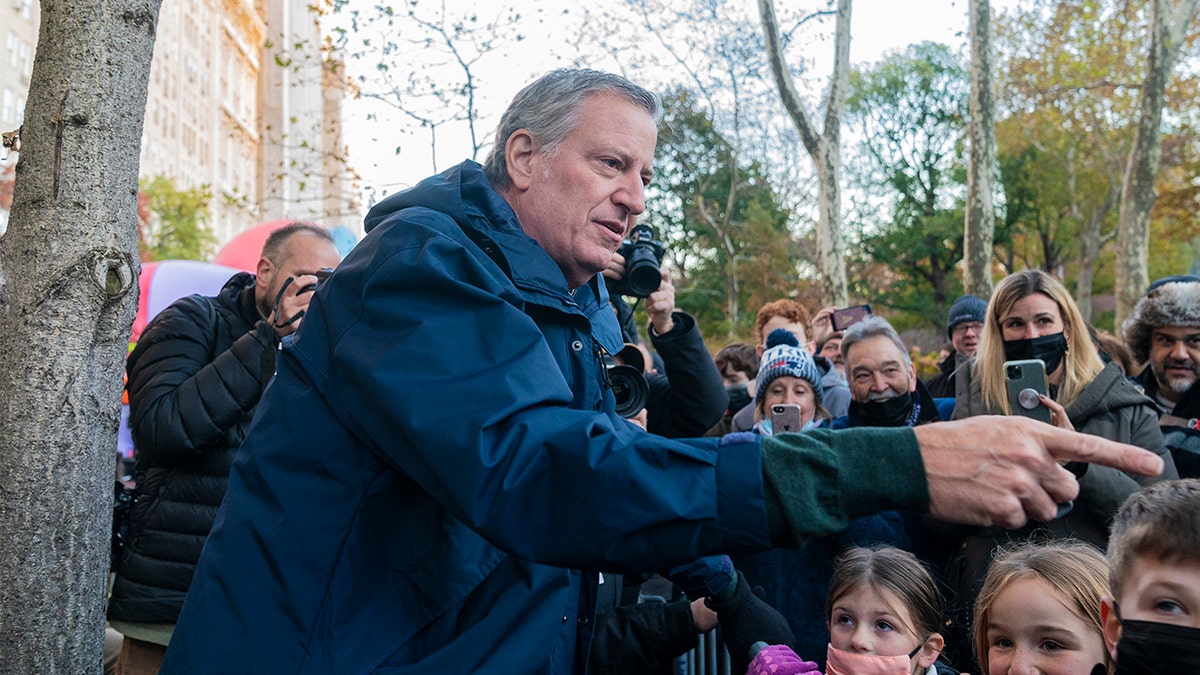Fox News Flash top headlines for May 20
Fox News Flash top headlines are here. Check out what's clicking on Foxnews.com.
Former New York Mayor Bill de Blasio announced that he is running for Congress.
De Blasio announced Friday that he will be seeking the Democratic nomination for the newly drawn 10th Congressional District. Rep. Jerrold Nadler occupies the seat, but has announced his plans to vacate.

Mayor Bill de Blasio greets spectators during 95th Macy's Thanksgiving Day parade balloon inflation on West 81st street. (Photo by Lev Radin/Pacific Press/LightRocket via Getty Images) (Lev Radin/Pacific Press/LightRocket via Getty Images)
"I'm very proud of having led this city out of the worst of the COVID crisis," de Blasio told MSNBC's "Morning Joe." "I’m ready right now to serve and address the issues that are so deep in communities in Brooklyn and Manhattan, and I just wanted to come here, a place that I cherish, and with you who have been such good friends to tell you this is the next step and I want to serve the people of the community that is my home and that I love."
He had announced an exploratory committee just days before the Friday announcement.
Earlier this year, de Blasio turned down a run for New York governor, as he polled far behind Gov. Kathy Hochul in the Democratic primary.
The redistricting process has caused an uproar in the Democratic Party in New York, as Nadler, chair of the House Judiciary Committee, may face off against another powerful committee chair, Rep. Carolyn Maloney. Rep. Sean Patrick Maloney, the chair of the Democratic Congressional Campaign Committee, has stirred controversy by announcing he will run against a freshman Democrat, Rep. Mondaire Jones.
De Blasio's last years in office were controversial and fraught with contention on issues ranging from crime and law enforcement to his administration's response to the COVID-19 pandemic. He has been open about the bitter end of his tenure in office, claiming he made several mistakes that cost him his connection with voters.
DE BLASIO SAYS BIDEN SHOULD LEARN FROM MAYOR'S ‘UNPOPULAR’ MISTAKES
"I failed to give New Yorkers a clear sense of where I was taking them. I lost my connection with the people because I mistook real policy for real popularity. I let a focus on individual initiatives, no matter how noble or substantive, distract me from offering an overarching vision for the future," he said in the Atlantic op-ed.
"When it comes to being unpopular, I’m unfortunately somewhat of an expert. I made my fair share of mistakes," he wrote.













































